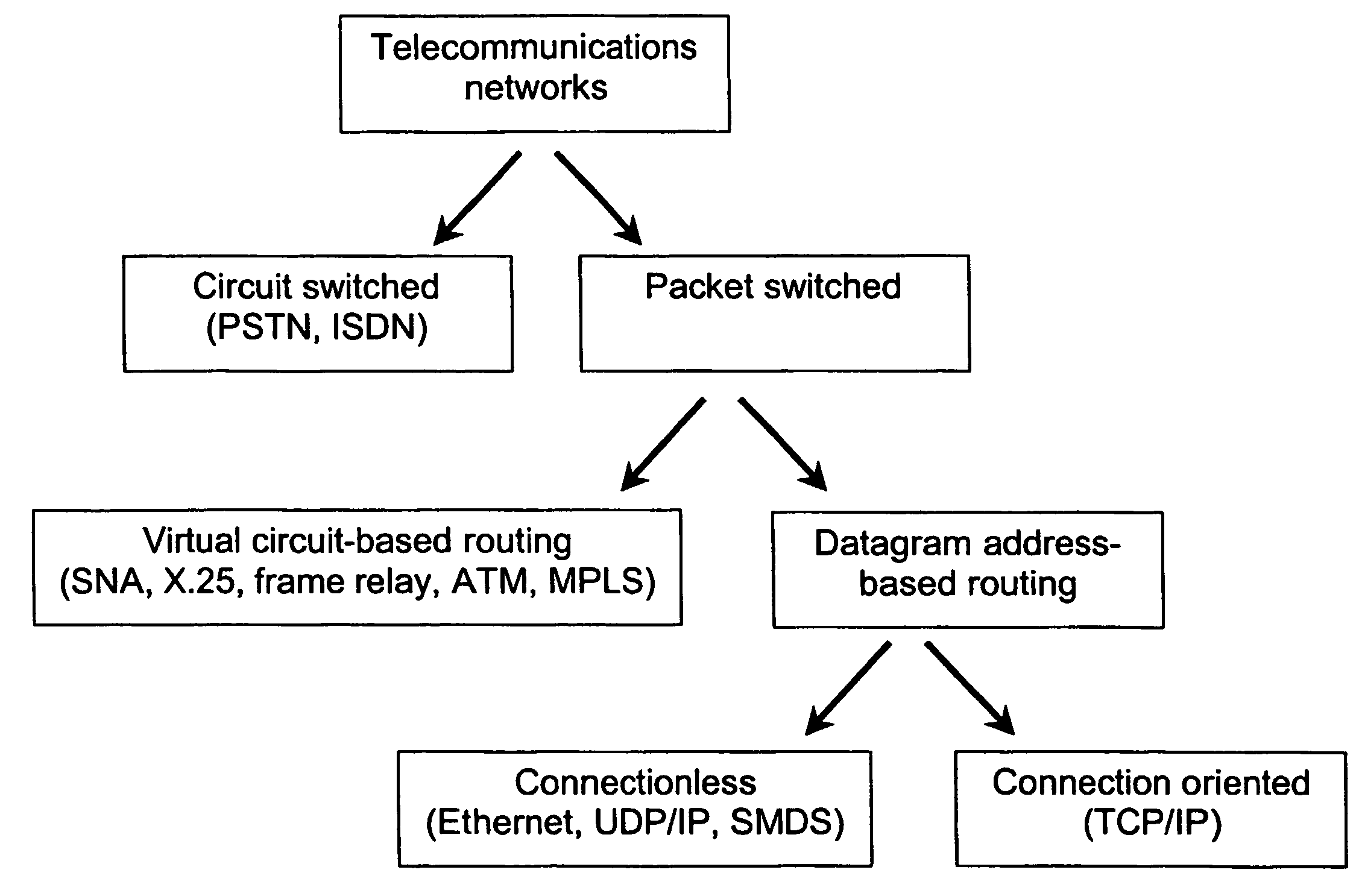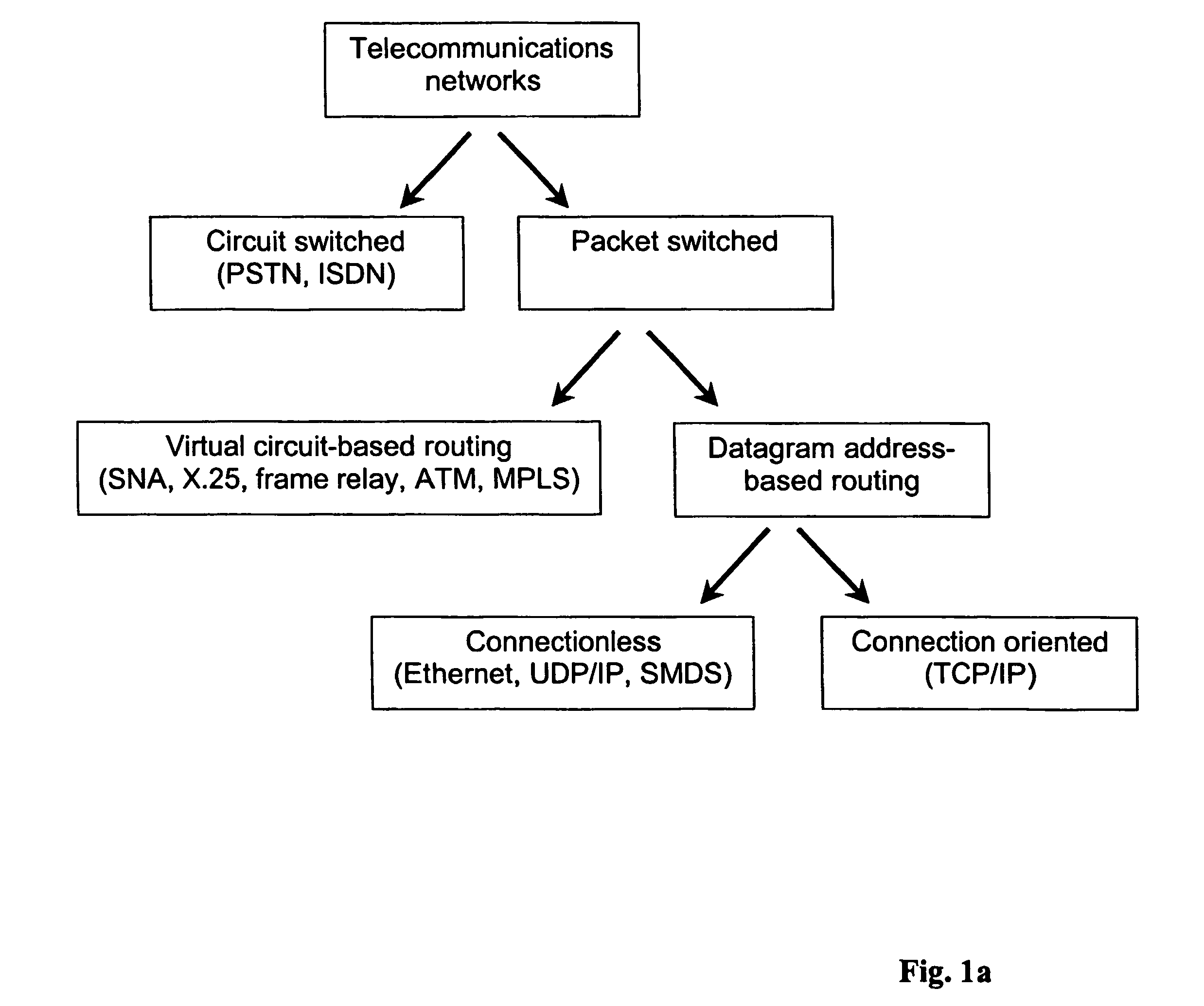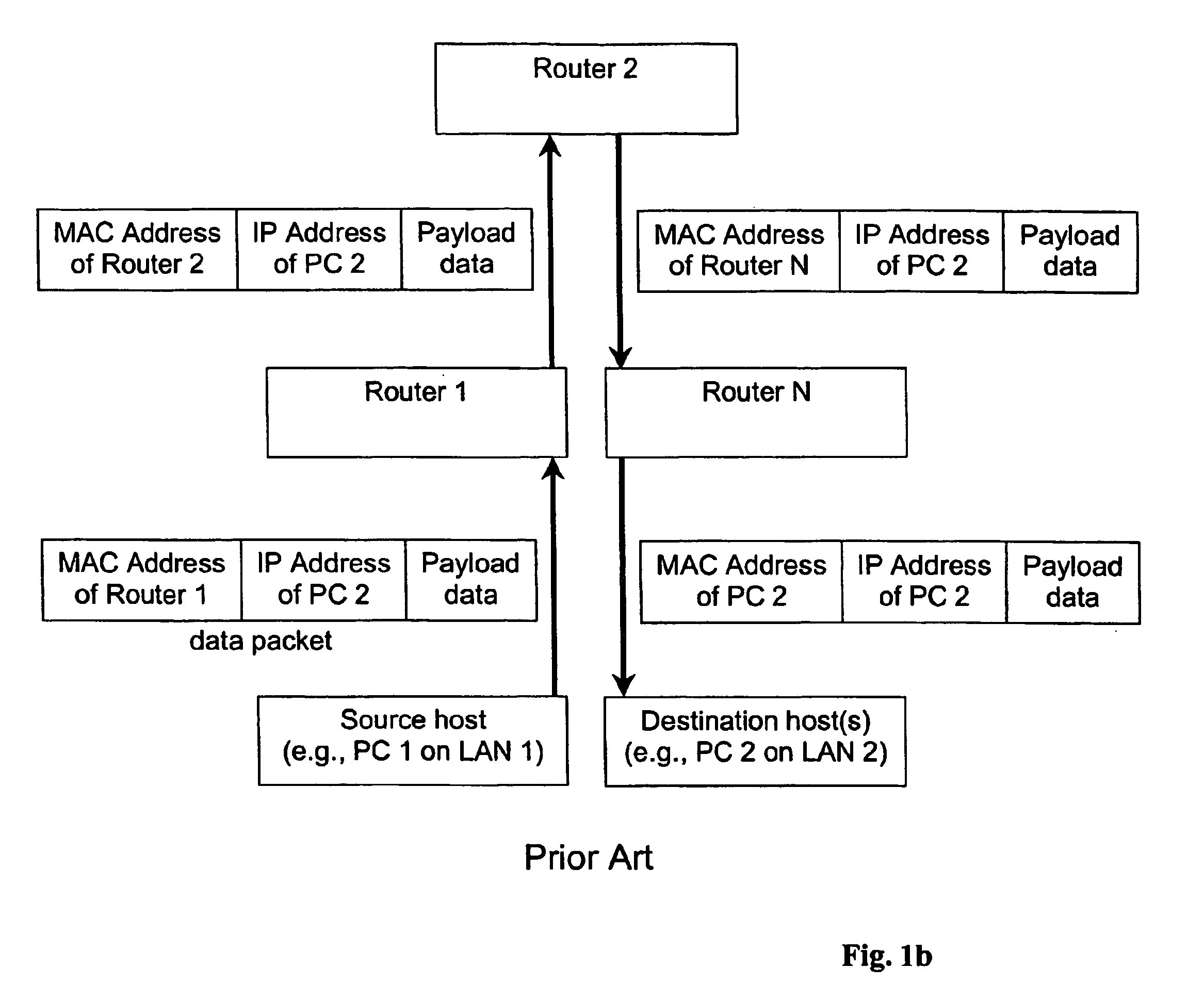Data structure method, and system for multimedia communications
a data structure and multimedia communication technology, applied in the field of multimedia communication, can solve the problems of inability to create a high-quality multimedia network that can be widely used, network architecture that has been designed primarily for data communication may not be well suited to supporting multimedia applications, and achieve high-quality multimedia services. , the effect of high-quality
- Summary
- Abstract
- Description
- Claims
- Application Information
AI Technical Summary
Benefits of technology
Problems solved by technology
Method used
Image
Examples
Embodiment Construction
A computer system, method, and data structure for providing high-quality multimedia communication services are described. In the following description, numerous specific details are set forth to provide a thorough understanding of the present invention However, it will be apparent to one of ordinary skill in the art that the invention may be practiced without these particular details. In other instances, networking elements and technologies such as fiber optic cabling, optical signals, twisted pair wires, coaxial cables, the Open Systems Interconnection (“OSI”) model, Institute of Electrical and Electronics Engineers (“IEEE”) 802 standards, wireless technologies, in-band signaling, out-of-band signaling, leaky bucket model, Small Computer System Interface (“SCSI”), Integrated Drive Electronics (“IDE”), enhanced IDE and Enhanced Small Device Interface (“ESDI”), flash technology, disk drive technology, and Synchronous Dynamic Random Access Memory (“SDRAM”) are well known and thus do n...
PUM
 Login to View More
Login to View More Abstract
Description
Claims
Application Information
 Login to View More
Login to View More - R&D
- Intellectual Property
- Life Sciences
- Materials
- Tech Scout
- Unparalleled Data Quality
- Higher Quality Content
- 60% Fewer Hallucinations
Browse by: Latest US Patents, China's latest patents, Technical Efficacy Thesaurus, Application Domain, Technology Topic, Popular Technical Reports.
© 2025 PatSnap. All rights reserved.Legal|Privacy policy|Modern Slavery Act Transparency Statement|Sitemap|About US| Contact US: help@patsnap.com



